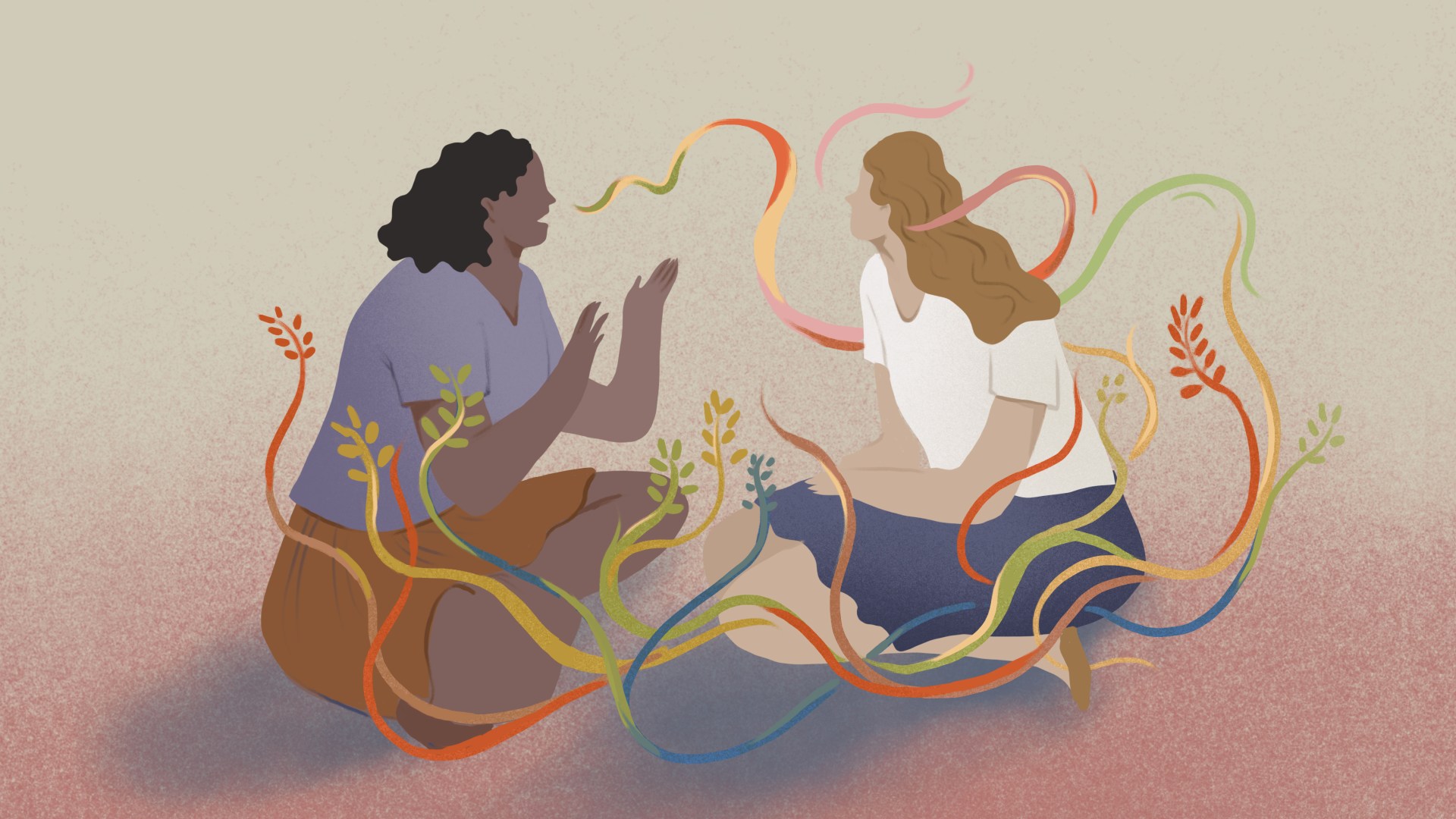In early June, with protests erupting around the country and George Floyd’s dying words still hauntingly fresh, The Washington Post published a column with a pointed headline that surely spoke for many who were fed up with seeing racism denied or minimized: “The best white statement to make right now may be to shut up and listen.”
Glaring episodes of racial injustice often inspire renewed appeals for white people to humble themselves, tamp down the defensiveness, and be open to what their black neighbors are saying. Indeed, it’s hard to imagine a more reasonable, unobjectionable request. Listening well is the barest requirement of basic human kindness, especially when those around you are hurting. When black people volunteer their personal experiences of prejudice, their perspectives on structural racism, or their raw fear of a loved one being gunned down by police, they deserve far more than stony indifference or mulish combativeness.
For Christians, the call to listen carries added force, not least when it comes from brothers and sisters in Christ. After all, biblical people are nothing if not listening people. As James instructs us, “Everyone should be quick to listen, slow to speak and slow to become angry” (1:19). Proverbs abounds with warnings against running one’s mouth while closing one’s mind and ears. “Fools find no pleasure in understanding,” according to Proverbs 18:2, “but delight in airing their own opinions.” By contrast, Scripture commends those who embrace a righteous rebuke: “Whoever loves discipline loves knowledge, but whoever hates correction is stupid” (Prov. 12:1).
Seen this way, cries of “It’s time to listen” are firmly rooted in biblical soil. Yet they also lay a subtle snare for the church. Even when they aren’t advanced in a militant or domineering spirit (“Shut up and listen!”), they can easily discourage any disagreement on matters of racism as unwelcome and counterproductive. At worst, they can introduce an informal hierarchy of the Enlightened and the Unenlightened—a hierarchy that sits uneasily with the Bible’s picture of brothers and sisters who worship and congregate on equal footing.
This is especially troubling when one considers the contested shape of so many current conversations on race. It’s one thing to affirm that racism is incompatible with the gospel or that too many white churches were (and are) shamefully irresolute in resisting it. But other issues aren’t so cut-and-dried. What, for instance, are the definitional boundaries of “whiteness” or “white supremacy”? Should Christians endorse every last stance taken by Black Lives Matter? What should we make of campaigns for reparations? Or statistics on bias in policing? Or the claims of critical race theory? Are white believers guilty of “white fragility” for even wondering?
Questions like these can’t be resolved by explicit recourse to Scripture. And black believers are hardly of one voice in how to answer them. All of which underscores the fact that listening can’t be a one-way street. If those in Christ are truly brothers and sisters, then believers of all colors and political persuasions should enjoy the freedom to share sincere, good-faith opinions without standing accused of silencing black voices or negating black suffering.
Our familial bond, of course, doesn’t erase the painful particularities of history or social location. Hopefully, any Christian who hasn’t experienced racism would acknowledge a weightier burden of listening relative to those who’ve endured its lash or witnessed its sinister workings firsthand. Just as the New Testament recognizes the presence of spiritual “infants” among the fellowship of believers (Eph. 4:14; Heb. 5:13; 1 Cor. 13:11), some members of today’s church face a steep racial learning curve.
But this is a far cry from dividing the church into a teaching class that “gets it” and a listening class condemned to remedial education, with membership determined by little more than skin color and fluency in the lingo of anti-racist activists. To the extent that “listening” precludes thinking and speaking against the grain on complex matters of race and justice, it represents a moral and intellectual power play unworthy of the body of Christ.
Ecclesiastes juxtaposes “a time to be silent and a time to speak” (3:7). As the church seeks this balance in a time of racial reckoning, we should ask whether white Christians have done too little of the former and too much of the latter. We should ask, as well, whether black Christian voices are truly being heard rather than reflexively dismissed or branded as dangerously “political.” But we shouldn’t confuse the ideal of listening with a forum where the microphone never changes hands.
Matt Reynolds is books editor for Christianity Today.










